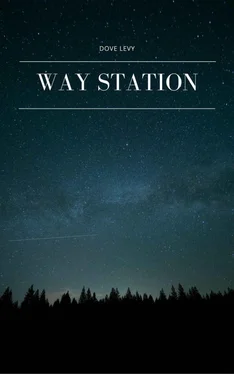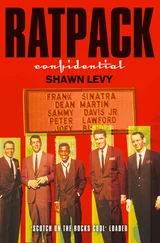Audio autopsy reviews and diary of Dr. Eve Strauss, forensic pathologist on the rogue planet Way Station, investigating the deaths of the eleven research teams stationed there.
— — —
Dr. Eve Strauss, Research Facility A on the southern continent of Way Station, assisted by Dr. Isaac Federman. Walls are intact and the life support system is running at optimal capacity. Food storage and air supply are clean. Most of the research team was found in the recreation area, in addition to two bodies in the kitchen, one in the west end bedroom, and three in the lab. All areas show signs of struggle but the positions of the bodies don’t suggest that they were fighting each other.
Examination review of Irene Willis, ID number 1104, details in file. Full autopsy report in temporary file, pending transfer when communication channels open again. They were found clothed in the recreation room beside an elliptical, their right leg caught under one of the pedals, the shin shattered post-mortem, suggesting they had died upright and then fallen, their leg trapped as the pedal came down. No other external wounds found. Eyes cloudy.
Symptoms point to arsenic poisoning, however no traces have been found in the blood. Examination of stomach contents show nothing abnormal, nor are there any injection wounds on the body. No drink or dried food in the facility by the time of our arrival contains levels of any poison high enough to cause symptoms or death. Dr. Federman is in the process of testing the fresh foods delivered from Facility C, the tests halfway complete as of the time I’m recording this, and none are yet showing signs of tampering. Cause of death hesitantly put to poison, manner of death unknown. All members of Facility A are deceased. The entry log shows no visits from other stations for the past month, the last being when Facility C sent the monthly stock of food grown on their farm.
* * *
We’re disposable.
That’s why they sent a psychologist with me, I think. They said it was to help deal with this planet, with the darkness, with being surrounded by dead bodies in an otherwise dead world where the only life resides in the deepest parts of the deepest oceans. They said it was to make this mission run faster, to keep me from falling down into my own fears because no person had ever been in our positions before.
But frankly, I think that’s bull. Each facility’s main areas are brightly lit at all times, the light just like those in our labs back home and in the ship that brought us here, and the rest of the station’s lighting brightens and dims in a mockery of Earth’s days and nights to keep our internal clocks and our minds going right in a world that otherwise hasn’t see light in millions of years. These facilities were full of people, twenty to a hundred per team, and nobody was allowed to be alone for an instant. We needn’t deal with the darkness. We needn’t deal with the loneliness.
That they feign worry over my reaction to dead bodies, considering my profession, is laughable.
I told them all of this. “You can’t know how you’ll react until you’re there for a month,” they said to me. No matter what I asked for or what problems I brought up, they gave the same excuses, muddled in jargon and language straight out of a thesaurus that made it sound like they knew what they were talking about. They had more experience, they had the science and the reports from those who actually lived on Way Station, so they knew better than me, right?
I still agreed. Of course, I agreed. Only a few thousand people on Earth have ever set foot on Way Station, have ever set foot on another planet at all, and I could be one of them. This is my one chance to help my family, and my last chance. We have the largest space programs backing us, monitoring us through the facility systems, taking the small reports that can be given during the times the communication channels aren’t optimal and personally checking in with us when the channels are clear again. It would be fine, I told myself. I’m going to space.
When the excited child within you is yelling, it’s hard to listen to rational thought until you were already too far gone to turn back. Only when Dr. Federman and I were alone on a ship with the Earth falling out of view behind us did I look through the members of all the research facilities on the planet ahead and find that only two of them had psychologists, and both of those people had the necessary credentials in other needed fields for their teams. Neither were there to keep their colleagues stable.
They sent us alone, just the two of us. I’d be angry, but I’m too tired for it. Already I’m exhausted, and I’ve only been here a day. The anger will come soon, though. Neither of us is anywhere near the tops of our fields, neither of us has been to Way Station before like so many others who’d returned to Earth prior to the poor fate that befell the rest. They would have been more than capable of flying back up here and taking over the jobs assigned to us.
We’re only here because all the teams have died and they can’t risk anyone who’s actually worth something. So they preyed on the needy. Everyone does that, nowadays.
— — —
The darkness is so much fuller than I’d thought, though. That’s one thing they were right about. I couldn’t begin to imagine what it would look like, feel like, to be here.
I thought I was used to the darkness. I thought I liked it. I grew up in it, in a small house in a vast plain, no mountains or hills or other buildings in sight. At night, when the moon was new and clouds covered the stars, it looked like the night was endless, like I was the only thing in the world. I loved it.
But on those nights at home, in the middle of what looked like eternity, I knew the clouds would blow away eventually. I knew the moon’s crescent would appear the next night, the sun would come up in the morning, and though it would take many miles to reach the next living person outside of my family, they were always there, always available.
This station sits in the middle of a vast forest located nearly dead center on the southern continent, in a forest older than the mountains on Earth, and I can only see a few trees. Here, it’s just black. It’s nothing, and it will stay nothing until the day when maybe it will chance upon another solar system, thrust its way in with likely unspeakable damage to whatever sorry planets are in its way, and kick them out like it was kicked out itself. Then, the sun would rise in the mornings, and maybe some of the atmosphere would burn off and let the land see the light of the stars once more.
At least, I think so. I don’t really know much about how planets and atmospheres and solar systems work. Maybe the clouds above my head are so thick even sunlight wouldn’t pierce through. Maybe this world will forever stay in darkness.
I don’t want to talk about this. It feels useless to sit here rambling about whatever comes to mind. I could be looking back over the notes of the crew, helping Dr. Federman finish his testing, reading through the studies they’ve done on the surrounding area and listening to the messages between the stations. I’m no investigator, but neither is Dr. Federman, and they didn’t send any out with us to help us so we’re all we’ve got.
But Dr. Federman said that I don’t have long to journal what’s happening before the memories start to fade, and I have all the time in the world to read. “It’s not always a bad thing to talk just to hear the sound of your own voice,” he’d said. It’s a mental thing, supposed to keep me from losing it up in this empty and dead space where the only person to talk to is a man I don’t know who always seems like he has a stick up his ass. I thought my case reviews would be enough, the small files that can be sent down to Earth in the poor connection available between the monthly check-ins, but those don’t have any feelings , so apparently, they don’t count.
Читать дальше












